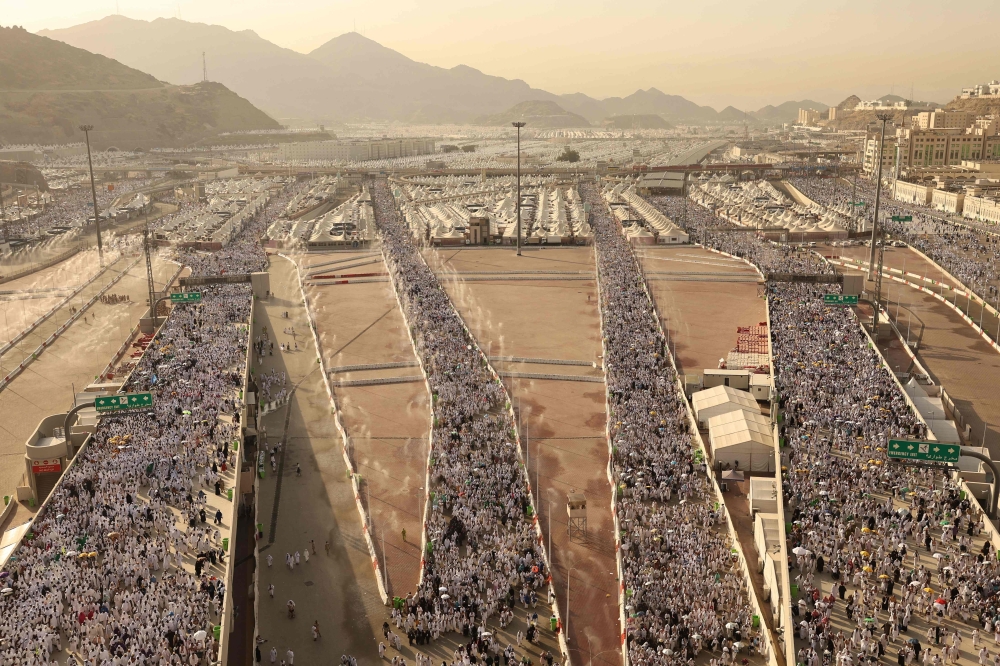The annual Hajj pilgrimage in Mina, near Mecca, Saudi Arabia, is a significant event for Muslims worldwide. This year, 1.8 million pilgrims participated in the pilgrimage, which culminated in the symbolic ‘stoning of the devil’ ritual. The ritual involves throwing seven stones at each of three concrete walls symbolizing the devil in the Mina valley. The stoning ritual is the last major event of the Hajj pilgrimage and takes place on the Eid al-Adha holiday.
Despite efforts to streamline the process and make it easier for pilgrims, the roads leading to the stoning ritual site were still crowded, with some pilgrims visibly struggling in the heat. Temperatures in Arafat reached 46 degrees Celsius, leading to cases of heat stress and fatigue among worshippers. However, many pilgrims tried to make the most of the once-in-a-lifetime opportunity to pray at Islam’s holiest shrines, despite the challenging conditions.
Some pilgrims, like Rohy Daiseca from Gambia, found ways to cope with the heat by keeping themselves hydrated. Despite the challenges, pilgrims like Amal Mahrouss from Egypt expressed their happiness and the sense of unity they felt among Muslims from all over the world. The Hajj pilgrimage, one of the five pillars of Islam, must be performed at least once by all Muslims who have the means to do so. This year’s number of pilgrims, 1.8 million, was similar to last year’s, with 1.6 million coming from abroad.
The stoning ritual on Eid al-Adha involves worshipping slaughter animals and offering part of the meat to the needy. However, this year’s holiday was overshadowed by the ongoing war in Gaza. Many pilgrims expressed solidarity with the Palestinians and called for an end to the occupation. Despite this, worshippers like Wadih Ali Khalifah from Saudi Arabia prayed for the liberation of Palestine and hoped for a future where two holidays could be celebrated instead of one.
The Hajj pilgrimage not only holds a spiritual significance for Muslims worldwide but also serves as a reminder of the unity and equality among worshippers from different nations. The challenging conditions faced by pilgrims during the ritual and the holiday highlight the dedication and perseverance of those undertaking the pilgrimage. With the completion of the stoning ritual and the celebration of Eid al-Adha, pilgrims return home with a sense of fulfillment and spiritual renewal, having performed one of the most important rituals in Islam.










